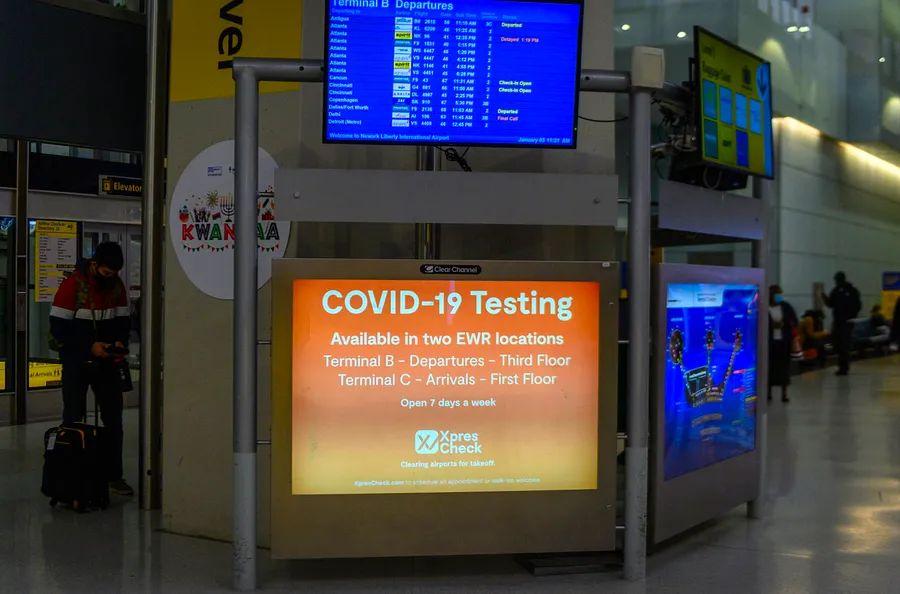Five key points to consider when traveling after recovering from COVID-19

Many Americans, myself included, still feel cautious about international travel.
International airline passenger numbers are 38% lower than in 2019, compared to a 23% drop for domestic flights, with 23% fewer international flights available, according to a report from Airlines for America analyzing data from member airlines (Alaska, American, Delta, Hawaiian, JetBlue, Southwest, United, and their branded codeshare partners) for January.
While there's a risk of testing positive for COVID-19 abroad and needing to quarantine in another country, complications may actually arise upon your return to the U.S. (or your home country), as you can continue to test positive for up to three months after infection, according to the U.S. Centers for Disease Control and Prevention.
This week's column addresses this important topic, discussing what you should know about traveling after recovering from COVID-19 to meet various countries' entry requirements related to negative test results or recent proof of recovery. We consulted an infectious disease epidemiologist from the University of California, San Francisco to answer your pressing questions.
1. Why might I still test positive on a PCR test after recovering from COVID-19?
"PCR tests can identify viral particles that are no longer active (for instance, the individual is no longer contagious but still has detectable viral remnants in their nose). Therefore, residual particles may be picked up by RT-PCR even long after recovery," explained Dr. Catherine Oldenburg from UCSF, who mentioned that PCR tests can stay positive for several weeks following infection.
 (Photo by Songphol Thesakit/Getty Images)
(Photo by Songphol Thesakit/Getty Images)2. If I test positive on a PCR test, can I assume that an antigen test will also yield a positive result?
"This is likely, but there’s always a possibility of a false-negative with any test," Oldenburg stated. "Typically, a PCR test will show positive results before an antigen test does, and the antigen test will turn negative before the PCR test does."
3. Conversely, if I receive a negative result on a rapid test, does that indicate I don't have COVID-19?
"Antigen tests are quite effective at identifying individuals who are infectious at a given moment," Oldenburg explains, noting that a negative rapid test could imply one of four scenarios:
- You may not be infectious yet (for instance, you could be in the very early stages of infection).
- You might be recovering (no longer contagious).
- It could be a false negative (if this concerns you, consider taking a second rapid test, preferably from a different brand).
- It could simply be a true negative.
"It's crucial to remember that any test reflects your status on the day it was administered, but it can't predict what your status will be tomorrow," Oldenburg emphasizes.
 A COVID-19 testing station in the international arrivals area of LAX on December 22, 2021. (Photo by Frederic J. Brown/AFP/Getty Images)
A COVID-19 testing station in the international arrivals area of LAX on December 22, 2021. (Photo by Frederic J. Brown/AFP/Getty Images)4. How should travelers navigate this situation? Is it simpler to visit countries like the US that accept proof of COVID-19 recovery instead of requiring an arrival test?
"If I were traveling soon after my recovery, I would carry a doctor's note, a negative PCR test, rapid tests, and my vaccination and booster documentation," said the UCSF associate professor. "I've noticed some confusion among gate agents and authorities regarding PCR test results that list 'NAAT' (nucleic acid amplification test) rather than 'RT-PCR,' as well as uncertainty about whether LAMP (loop-mediated isothermal amplification) is a valid alternative to a PCR test."
5. What qualifies as proof of recovery?
Keep in mind that proof of recovery and other entry requirements differ by country based on local regulations.
For instance, the CDC states that travelers who have a positive viral test taken within 90 days of travel and meet the travel criteria may use those test results along with a signed letter from a licensed healthcare provider or a public health official permitting them to travel according to the CDC's guidelines.
"The positive test result and accompanying letter are known as documentation of recovery," states the CDC. The doctor's note must include the traveler's name and date of birth, matching the information on your passport or other travel documents.
"The letter should be signed and dated on official letterhead that includes the name, address, and phone number of the healthcare provider or public health official who issued it," according to the CDC. "If you have recovered from COVID-19 but cannot provide documentation that meets these [above] criteria, you will need to present a negative COVID-19 viral test result from a sample taken no more than one day before your flight to the U.S. departs."
If you've recovered in the last three months, you can expect to encounter similar requirements in Argentina, Canada, Germany, and Ireland.
However, the situation is different in other locations, such as the U.K.
"Proof of recovery from a previous COVID-19 infection cannot be accepted as evidence of your COVID-19 status when entering England," according to guidelines issued by the U.K. government, which currently mandates fully vaccinated travelers to undergo a COVID-19 test upon arrival until February 11.
In summary
 (Photo by Emilija Manevska/Getty Images)
(Photo by Emilija Manevska/Getty Images)"Based on my personal experience with international travel during the pandemic, country guidelines can frequently change, so it’s wise to be more prepared than less so," Oldenberg noted.
For what it’s worth, I completely agree. Make sure to thoroughly check country entry requirements as close to your departure date as possible to confirm they haven’t changed at the last minute.
Do you have a question for next week? Feel free to email me at [email protected] or [email protected].

1

2

3
4

5
Evaluation :
5/5